Category: Cornucopia
-
Exploring Mormon Thought: Divine Belief
We remain, in chapter 9 of The Attributes of God, within Ostler’s larger assessment of the (in)compatibility between exhaustive divine foreknowledge and human free will. I want to do two things in this post. First, I want to focus briefly on Ostler’s claim, on page 280, that the point on which “the debate ultimately turns”…
-
Conference Plug: Mormons and the Internet
Want to be discussed, dear reader? Engage in naval gazing? Hear voices and see faces of names you’ve only read and intellectually crushed on? A reminder of the conference to be held at UVU on Thursday and Friday and appropriately live-streamed over the internet, featuring various luminaries from all corners as John Dehlin (of Mormon…
-
Why You Should Be Difficult
“I’m mad at Jacob,” I snarl to my husband. “Jacob who?” he asks. “Jacob in the Book of Mormon!” He backs away slowly, as if from a dangerous, wounded animal.
-
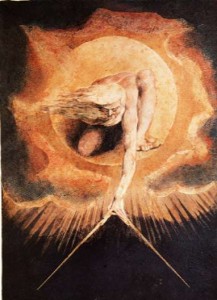
Exploring Mormon Thought: The Homogeneous?
In chapter 8 of The Attributes of God, Ostler continues grappling with the question of human agency in relation to God’s foreknowledge. The professional literature generated by this kind of theological question is wide and deep and the field is no particular speciality of mine. On these kinds of questions, Ostler is much better read…
-

Your help needed: naming Mormon ice cream
Not too long ago, Ben and Jerry’s opened a new front in the culture wars by temporarily renaming its “Chubby Hubby” flavor as “Hubby Hubby” and highlighting this chilling act on their website. And now they’re at it again. I’m guessing that at some point the Church will respond with its own renamed flavor, which…
-

What Happened Last Thursday at Institute: l’Affair Botte Goes Local
(I’m jumping because of the Bott stuff, but will still put up my 2 posts on Genesis 2-4 and Creation/temples post.) Instead of beginning on the Flood on Thursday as planned, I decided to take 5 minutes to talk about the mark of Cain in Genesis 4, and the curse on Canaan in Genesis 9.…
-
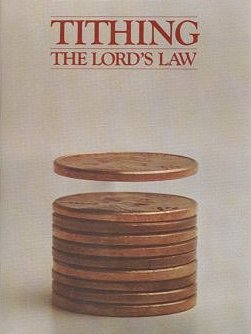
-
Exploring Mormon Thought: Agency
I will intentionally ignore the larger context in which chapter 7 of The Attributes of God appears—namely, an attempt to nail down the nature, according to the Mormon conception, of divine omniscience. I’ll focus more narrowly on just what Ostler has to say about agency. I think the larger concerns here are important, but we…
-
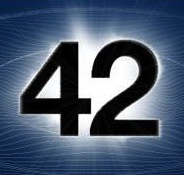
Institute Report: Genesis Week 5 (corrected)
(We’re a few weeks behind here on the blog. I hope to catch up. Most important for my students: We WILL have Institute this week, contrary to what I said last Thursday.) Tonight we finished off Genesis 1 and introduced the second creation account in Gen 2. Had a few more people, so I started…
-
Tomorrow’s folklore (Updated)
Recent and highly public events have focused attention on the prevalence of “folklore” — church members, sometimes in positions of authority, “freelancing” beyond church doctrine. Of course, there are a variety of complicated issues in trying to sort out doctrine from folklore, which l’affaire Bott cast into sharp relief. There have been recriminations and hurt…
-
Notes from the ApostaCon
Following “Exploring Mormon Conceptions of the Apostasy,” a conference organized by Miranda Wilcox and held this last Thursday and Friday at BYU, I heard several people say that it was the best conference of any kind they had ever participated in. I don’t think that was merely a polite exaggeration.
-
The Un-Christian Juror
I finished up my month of jury duty last fall. Yes, you read that right: a month of jury duty. As things settled back to my usual craziness, I decided that I was rather disturbed by my behavior.
-
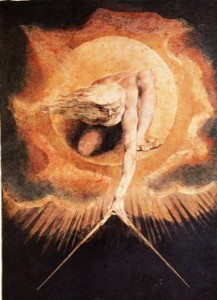
Exploring Mormon Thought: The Multitude
Is there a set of all sets? This is one way of asking that most basic of all metaphysical questions: is the world “one” or “many”? For traditional Christian thinking, the difference between the world being one or many was simply the difference between Christianity and paganism. Joseph Smith’s assertion that we are uncreated and…
-
Mormon Intellectuals Part III: My Postscript
(See here for Jim’s original post, here for part I, and here for part II) In my original response to Jim, I wrote the following: While I’ve tried to be fair and accurate, it may be that I’m misreading [Toscano or Faulconer], that I’m mistaken in my analysis of their position. Even if that turns…
-
Mormon Intellectuals Part II: Jim’s Comments
I had previously intended to post some of Jim’s comments from an email. Instead, I’m re-posting his response to Part I here in order to further highlight what he has to say. I’ll follow this up with one more post tomorrow. Jim’s comments are as follows: I cannot tell you how touched and flattered I am by…
-
Mormon Intellectuals: A Response to Jim Faulconer
I disagree with some important parts of Jim’s recent piece on intellectuals in the Church (please read what he said first). By the end, I hope it’s clear that it is (in part) for “Faulconerian” reasons that I disagree with him. To begin, I’m going to indulge in a bit of biographical narcissism in order…
-
Why one sixth of the 1830 Book of Mormon was set from the original manuscript: Conclusion
Previously appearing on Times and Seasons: Part I: A tentative theory – the copyists for the printer’s manuscript didn’t work quickly enough. Part II: Rejecting the theory. * * * In January of 1830, Abner Cole illegally published three excerpts from the Book of Mormon, printed in three issues of The Palmyra Reflector, including a section…
-
The Bootless
Most of what is given is never received. Most of what is possible goes unrealized. And many feet never find a shoe. True, life presses on (except when it doesn’t). But when it moves, it moves in fits and false starts and, just like Darwin said, most of its spendthrift variations end up serving no…
-
Why was one sixth of the 1830 Book of Mormon set from the original manuscript, Part II
Previously appearing on Times and Seasons: Part I: A tentative theory – the copyists for the printer’s manuscript didn’t work quickly enough * * * One important question for this scenario is: Why did the copyists do that part of P that they supposedly fell behind in producing?
-
Passenger
Visiting hours ended at 8:30. I hugged my son goodbye and headed out of the adolescent unit, pausing at the locked exit for an attendant to buzz me through. Ben had been at the neuropsychiatric institute for nearly a week, following an acute mental health crisis. We visited him every day—either me or my husband…
-
Why was one sixth of the 1830 Book of Mormon set from the original manuscript?
Royal Skousen is editor of the Book of Mormon Critical Text Project and professor of linguistics and English language at Brigham Young University. Part I: A tentative theory Physical evidence from the Book of Mormon manuscripts shows that the compositor (that is, the typesetter) for the 1830 edition normally used the printer’s manuscript to set…
-
Exploring Mormon Thought: Analysis and Synthesis
In the fourth chapter of The Attributes of God, Ostler does both a nice bit of analysis and a nice bit of synthesis. Ostler’s Analytic Gesture Through engagements with a handful of potential philosophical pitfalls, Ostler constructs a very nice analytic definition of omnipotence, stated thus on page 116: A is omnipotent at [time] t…
-
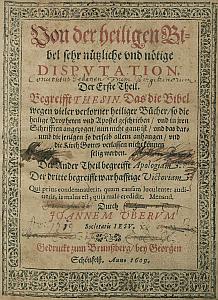
The Lost Books of the Bible (1609 Catholic edition)
In 1609, Johannes Uber published the first part of his Very Useful and Necessary Disputation Concerning the Holy Bible (Von der heiligen Bibel sehr nützliche und nötige Disputation, VD17 1:050537Y) in which he argued for two points. First, that the Bible was no longer whole “because of the many lost holy books that the holy…
-
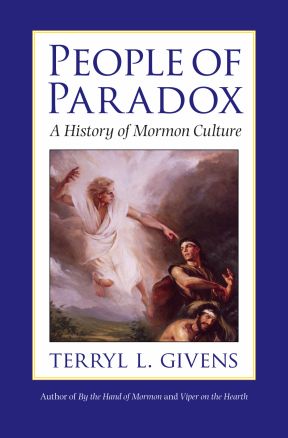
Reassessing the theological side of the Compromise
Terryl Givens’ recently wrote about the American compromise with Mormonism, whereby Mormons agreed not to be so radical as to entirely alienate themselves from American society (i.e., ditch polygamy and our lovely Deseret) in exchange for the U.S. ceasing its explicit campaign to eradicate us. He describes the unwritten contours of that compromise as consisting in a…
-
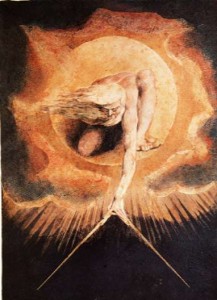
Exploring Mormon Thought: Second Principles
In House of Prayer No. 2, Mark Richard relates the hip surgery he had in the sixties as a boy. He didn’t understand much about what was happening. His parents checked him into the hospital and then he was pretty much on his own.
